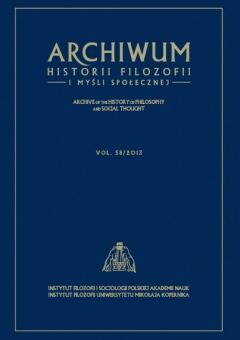Scheler: between Striving and Love
Adam Drozdek
Scheler’s main objection against Kant’s ethical system was that it was a formal system, not material. Ethics should deal with actual deeds, intentions, values, etc., not with a form, but with a content. Scheler separated values from goods and made them immutable and imperishable ideal objects that become real only when manifesting themselves ingoods. The world of values is hierarchical and is founded on the value of God. However, the principal moral values – good and evil – are not included in this hierarchy; they come into play when actualizing other values. Values are accessible to humans through an emotive intuition and are inaccessible to reason, which is a fairly serious weakness of Scheler’s system. The person, defined as the unity of actions, is the original carrier of good and evil. Moral goodness of a person becomes a reality when nonmoral positive values are actualized. There is a measure of innateness in Scheler’s system. Not only the entire emotive apparatus is built into the human being – strivings, preference, will, and feelings with the dominating character of love and hate – but also general rules or hierarchy of values and the rules or axioms of application of values. The general aspect of such rules means that formal ethics is innate, and this formal aspect of ethics acquires material dimension in life according toa particular social milieu. In this way, Kant’s framework of formal ethics is moved to the inborn level of emotive machinery.
 | Drozdek-58 |
Keywords: phenomenology · Scheler · ethics · values · God
The journal founded by Leszek Kołakowski, Bronisław Baczko and Jan Garewicz appears continuously since 1957.







